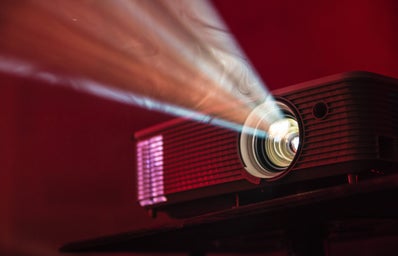I don’t remember watching a lot of the kids’ TV shows that people talk about. I never related to my friends who grew up watching Drake & Josh and iCarly, and I was always that one kid in the group who had never watched Spongebob, much to the chagrin of my friends who always reference jokes from old episodes. I do remember watching some TV though — just not the programs that everyone else remembers.
I wouldn’t describe my parents as the stereotypical, mainstream media-hating, granola-loving hippies that most people think of when they hear about parents who don’t want their kids to watch popular television programs (although we did eat a lot of granola). My parents are both very into education — my mom is a teacher and my dad was the first in his family to go to college. If I wasn’t at school, I was usually at a museum or the library. No matter what I was doing, they always wanted to make sure that I was learning at the same time. That’s where PBS comes in. When I did get the chance to watch TV, of course, I was watching educational programming.
PBS Kids was created as part of PBS, or the US Public Broadcasting Service. It began in the early 1990s as an initiative to provide underprivileged children with educational resources that they couldn’t access otherwise and eventually grew into its own brand with its own children’s programs. Some of the most well-known kids’ shows of our generation came from PBS — Arthur, Sesame Street, and Curious George all ran on the channel for so long that most of us have seen at least one episode. Even if they’re not as memorable for most people as other shows are, they still played a huge role in many of our childhoods.
I believe that I wouldn’t be the same person I am now if I hadn’t watched so many of these shows growing up. The main intention of the creators of these shows was to provide children with educational content without them realizing they were learning and that definitely had a lasting impact on me. One of my favorite shows was Cyberchase, where three kids go against the evil “Hacker,” a supervillain who tries to conquer an entire virtual universe. The protagonists have to use their math and computer skills to defeat the villain and save the world. That definitely influenced my love for technology and computer science. Even though I love writing and am currently a Communication major, I plan on going back to school after I graduate and getting an Associates’s degree in Computer Science. Without watching Cyberchase, I doubt I would have been so interested in coding and computers from such an early age.
I remember that my other favorite show was Zoboomafoo, which was centered around animal conservation and respecting the natural world. I’m sure I still would have had a basic understanding of environmentalism if I hadn’t watched this show, but I definitely wouldn’t have been as passionate about conservation as I am now. I participated in my town’s “Conservation Day,” a city-wide effort to clean up as many natural sites as possible, every year before the pandemic and I was even an Environmental Science major for a while. This show certainly had a huge impact on me as a kid and as an adult.
Even though I never watched some of the most popular shows of the 2000s that all my friends talk about, I’m super grateful for the experiences that I did have and the messages that I was exposed to when I was a kid. From my love for computer science to my beliefs in animal conservation, it’s safe to say that my parents’ love for educational kids’ television definitely had a positive impact on my life.
Can’t get enough of HC UMass Amherst? Be sure to follow us on Instagram, listen to us on Spotify, like us on Facebook, and read our latest Tweets!


